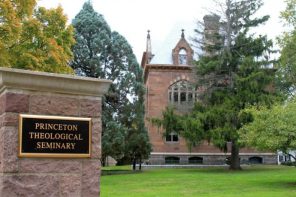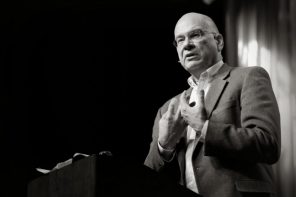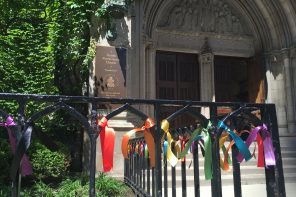I may leave the Presbyterian Church (PCUSA) in the future. Whether I do or not, I believe that my story—the story of many Korean clergywomen within the PCUSA—must be told.
Just as African Americans, other ethnic minorities and white women have struggled to find their place within our denomination during some of the most racist and sexist periods in our history, so now are the women of the Presbyterian Korean community.
I arrived in America in 1997. Even after I was certified, it took another six years for me to actually reach ordination because—even while he supported the ordination of male staff— the former senior pastor of Korean Central Presbyterian Church of Atlanta claimed the church could not afford to support me financially.
It was only after that senior pastor resigned that I was able to be ordained by the Presbytery of Greater Atlanta’s (PGA) Committee on Ministry (COM). In all, becoming an ordained minister in PCUSA took almost 20 years.
For the past 11 years, I have been the only PCUSA Korean clergywoman to serve in a paid position in a Korean PCUSA church—out of all 12 Korean PCUSA congregations in metro-Atlanta.
In addition to the senior pastor, the Session elders (similar in position to deacons in the Baptist or elders in the United Church of Christ denominations) did not support my ordination. As is well-documented, the role of these men in many Korean churches appears to be to do all they can to keep Korean clergywomen silent and submissive.
Three areas of mistreatment are particularly egregious.
First, Korean clergywomen hired by Korean Presbyterian churches are often not given firm job descriptions and employment contracts. For several years, I asked for and was denied these things, not knowing how critical they were.
After serving faithfully at Korean Central for eleven years, I was informed in 2015 that all paid staff members were being asked to resign. I later learned only that only two of us had been asked to leave, myself and the youth director. To add insult to this injury, because Korean Central had never provided me with a contract, I was unable to claim the $27,000 in severance I should have been entitled to.
Without a contract, I have learned, you do not exist to the Committee on Ministry, your Synod, or any national Presbyterian body or PCUSA officers. I made calls, sent emails, wrote letters, went through mediation, but at the end of the day was told by all denominational staff, in effect, “You do not have a contract, so we can’t help you.” I suspect Presbytery leaders around the country are aware of this type of wage-stealing. However, because many Korean churches represent much-needed cash for Presbyteries, they are allowed to practice wage discrimination against clergywomen, using the smokescreen of “cultural differences.” I believe the mistreatment is then often bolstered by PGA-supported, male-led groups like the recently formed Evangelical Coalition of Korean American Ministry.
Any Korean clergywoman who tries to protest is labeled a troublemaker, or emotionally unstable, to ensure that she is never given voice—a pattern all too familiar to women regardless of their cultural background. As a result, many Korean clergywomen will not speak up for fear of being exiled or blackballed, and then unable to gain employment in the PCUSA or other denominations. In addition, lawyers are leery of these cases because churches and other religious institutions receive special treatment under the law.
Second, women are paid less and often do not receive all of the benefits available to Korean men. I was paid less than men in my church and never received funds for continuing education, vocation and other benefits offered under the PCUSA’s minimum compensation standards. Additionally, ordained Korean clergywomen are typically not treated as teaching elders. Teaching elders earn more due to their credentials and training. Even though I have the credentials of a teaching elder, my paycheck was equal to that of a non-ordained youth pastor—a $1,200 per month housing allowance for seven years, same amount before and after ordination.
Also at Korean churches, the opportunity to be a full-time associate pastor is most often given to male clergy, which also affects income.
Third, Korean clergywomen are rarely allowed to preach to the adults in the Korean congregations for which they work. This is why many trained Korean clergywomen end up in predominantly-white Presbyterian churches. It’s their only way to preach and earn a living. In the last six years, I was never allowed to preach to the adults in the congregation on Sunday, although all ordained Korean men in the church did so.
I have never seen or heard of a Korean clergywoman preaching on Sunday in any of the Korean churches in Atlanta since Korean churches have been a part of the PGA.
I do not see myself as a justice warrior, but I know when enough is enough. Special thanks to the Women of Color in Ministry Project. Through its advocacy committee, I have found my voice. I will continue to speak up until Korean clergywomen are treated equally in Korean Presbyterian churches.





